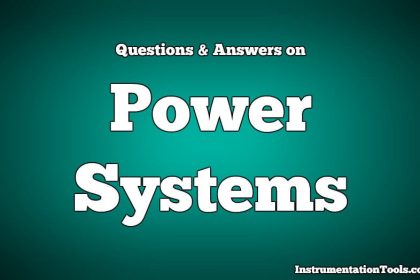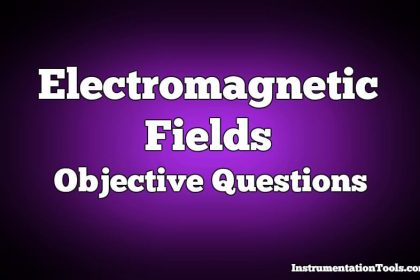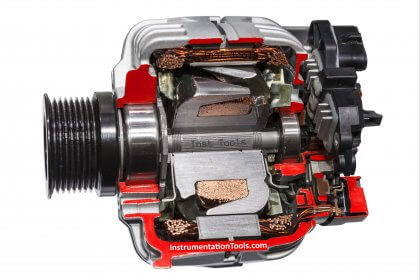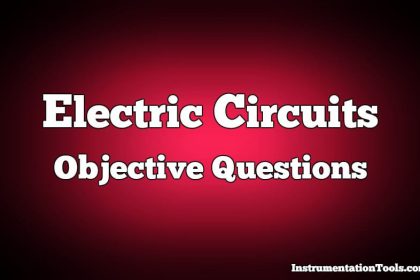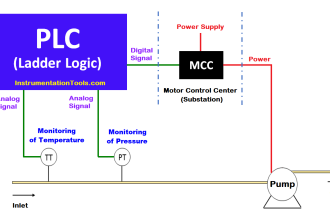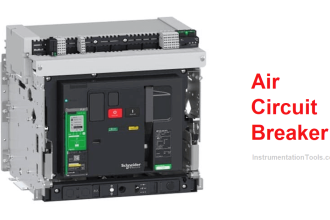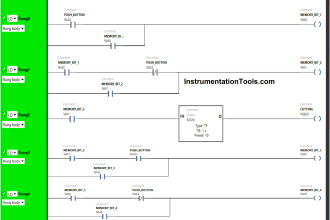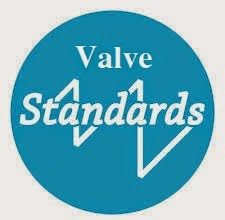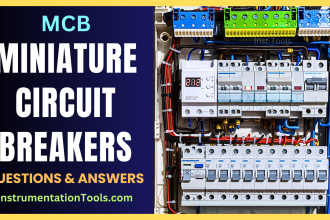Test your knowledge of encoders with this MCQ which covers types, working principles, and applications in electrical drives technology.
Encoder MCQ
We recommend viewing the below video to learn the explanations for the encoder questions.
Question 1
What is the primary function of an encoder?
A. Decode a signal
B. Store data
C. Convert input to coded output
D. Amplify a signal
Show the Answer
Convert input to coded output
Question 2
Which type of encoder is commonly used in robotics for position feedback?
A. Optical encoder
B. Magnetic encoder
D. Rotary encoder
Show the Answer
Rotary encoder
Question 3
What does a Gray code encoder help minimize?
A. Signal strength
B. Wiring complexity
C. Power consumption
D. Error due to signal change
Show the Answer
Error due to signal change
Question 4
How does an incremental encoder differ from an absolute encoder?
A. Measures speed only
B. Provides position on power-up
C. Uses binary code
D. Measures linear motion
Show the Answer
Provides position on power-up
Question 5
In a rotary encoder, what component is typically used to detect the position?
A. Capacitor
B. Photodetector
C. Resistor
D. Inductor
Show the Answer
Photodetector
Question 6
What is a common application of linear encoders?
A. Audio signal processing
B. Digital communication
C. CNC machine tools
D. Wireless networking
Show the Answer
CNC machine tools
Question 7
What coding scheme is often used in encoders to reduce the possibility of errors?
A. ASCII code
B. Binary code
C. Gray code
D. Morse code
Show the Answer
Gray code
Question 8
Which of the following is NOT a type of encoder?
A. Optical encoder
B. Digital encoder
C. Magnetic encoder
D. Analog encoder
Show the Answer
Analog encoder
Question 9
In an incremental encoder, what indicates the direction of rotation?
A. Pulse width
B. Pulse count
C. Dual-channel signals
D. Signal amplitude
Show the Answer
Dual-channel signals
Question 10
What is the main advantage of using an absolute encoder over an incremental encoder?
A. Higher resolution
B. Lower cost
C. Immediate position on power-up
D. Simpler design
Show the Answer
Immediate position on power-up
Question 11
Which technology is commonly used in optical encoders?
A. Reflective tape
B. Hall effect sensors
C. Photodiodes and slits
D. Capacitive plates
Show the Answer
Photodiodes and slits
Question 12
What is the purpose of a quadrature encoder?
A. To measure temperature
B. To track angular position and direction
C. To convert digital signals to analog
D. To amplify signals
Show the Answer
To track angular position and direction
Question 13
How do magnetic encoders detect position?
A. Using light sensors
B. By detecting changes in magnetic fields
C. Using resistive elements
D. By measuring voltage
Show the Answer
By detecting changes in magnetic fields
Question 14
Which output signal type is often used by encoders for digital systems?
A. Analog voltage
B. Current loop
C. PWM signal
D. Binary code
Show the Answer
Binary code
Question 15
What does the term “resolution” in an encoder refer to?
A. Size of the encoder
B. Number of positions it can measure
C. Speed of rotation
D. Power consumption
Show the Answer
Number of positions it can measure
Question 16
Why is a reference signal (index) used in incremental encoders?
A. To reduce noise
B. To reset the position counter
C. To increase resolution
D. To decrease power usage
Show the Answer
To reset the position counter
Question 17
Which of these applications would most likely use an absolute encoder?
A. Audio recording
B. Wind turbine positioning
C. Data storage
D. Internet routing
Show the Answer
Wind turbine positioning
Question 18
How does a capacitive encoder work?
A. By detecting changes in light
B. By measuring magnetic fields
C. By sensing changes in capacitance
D. By amplifying signals
Show the Answer
By sensing changes in capacitance
Question 19
What is a typical feature of a multiturn absolute encoder?
A. Measures only one rotation
B. Tracks multiple rotations
C. Uses only binary code
D. Limited to short distances
Show the Answer
Tracks multiple rotations
Question 20
Which type of encoder provides the highest accuracy in harsh environments?
A. Optical encoder
B. Magnetic encoder
C. Capacitive encoder
D. Resistive encoder
Show the Answer
Magnetic encoder
Question 21
What is the primary disadvantage of an optical encoder?
A. High cost
B. Limited accuracy
C. Susceptibility to dirt and dust
D. Complex signal processing
Show the Answer
Susceptibility to dirt and dust
Question 22
Which part of an incremental encoder generates the pulses?
A. Index marker
B. LED
C. Disk with patterns
D. Capacitor
Show the Answer
Disk with patterns
Question 23
How is the resolution of a rotary encoder commonly expressed?
A. Degrees per second
B. Pulses per revolution (PPR)
C. Volts per degree
D. Amperes per second
Show the Answer
Pulses per revolution (PPR)
Question 24
What does an encoder’s “linearity” refer to?
A. Size of the encoder
B. Signal amplitude variation
C. Power usage efficiency
D. Consistency of output with input
Show the Answer
Consistency of output with input
Question 25
Which of the following is a benefit of using a digital encoder over an analog encoder?
A. Higher noise sensitivity
B. Easier signal degradation
C. Simplified signal processing
D. Higher power consumption
Show the Answer
Simplified signal processing
Read Next:
- How to Select the Right Encoder?
- VFD Interview Questions and Answers
- Top 100 Power Systems Projects
- Electrical Components Overheating & Causes
- Electrical Drives and Controls Interview Questions

